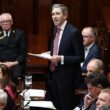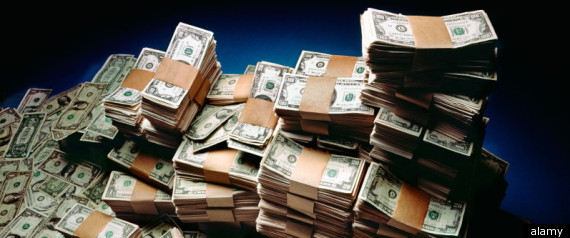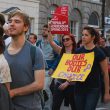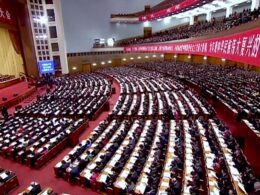By Manus Lenihan
The fifty biggest companies in the United States are sitting on piles of money adding up to $1.1 trillion. Apple, Microsoft, Google, Pfizer and Cisco alone have $439 billion between them (Financial Times). Like dragons sprawled watchfully dozing over heaps of gold, these gigantic corporations would fly into a rage over any plans to nationalise or raise taxes on their wealth – even though, with capital investment set to fall again, they don’t plan to spend most of it anytime soon.
Myths vs realities
If this fact boils your blood, consider that on top of that $1.1 trillion, between $20 and 30 trillion sits in offshore bank accounts.
Facts like this demolish, in one go, so many of the myths about the system we live under. With hoarding on this scale going on, where is the wealth “trickling down”? If the “free market” is really “the best way to match up supply and demand”, then why are eleven hundred billion dollars sitting idle under fifty companies, while we hear every day how underfunded our schools, hospitals and water services are? How can anyone say that capitalism is “efficient” when there’s such a criminal waste of wealth going on, all the time?
The “profit motive”, i.e. greed, means that the rich only invest when and where they can get more out of us than they put in. That means hoarding, gambling, playing-it-safe, or huge sums of money being pumped into useless or downright harmful areas.
Vast inequality
That wealth should be making its way around your neighbourhood, creating secure, well-paid jobs and providing free, quality services. Instead it’s being set aside by oligarchs who claim to know better than everyone else what to do with it.
At any point during the ongoing recession and stagnation, the planned investment of billions into housing, infrastructure, services and clean energy would have turned the economy around. Yet our pro-capitalist politicians insisted on massive cutbacks, new tax burdens, and privatisation.
Does this mean we should hope for “nicer” capitalists or “wiser” politicians who will redistribute wealth? The Socialist Party wouldn’t say no to bigger taxes on these cash-hoards, but the problem is bigger than that. We need these companies and their wealth to be owned and managed democratically, and run for human need, not for private profit. Then we could create a much more efficient, productive and fair economy, while also making a start at tackling some major problems. For example, the cost of clean drinking water globally is estimated in the tens of billions – loose change compared to what these extreme hoarders have in the bank.












